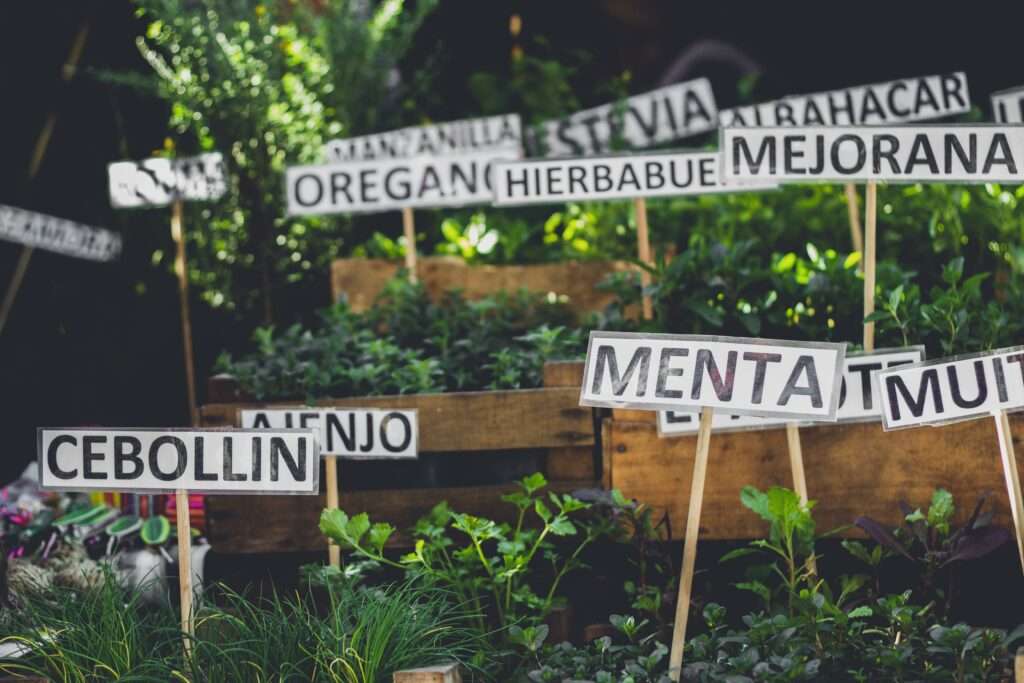
Sustainable Coffee Farming: Guide to Eco-Friendly Practices
In this blog post, we will delve into the world of sustainable coffee farming and explore the crucial role it plays in protecting the environment and preserving the future of coffee. We will discuss various practices that promote sustainability, including shade-grown coffee, organic farming methods, and fair trade. Additionally, we will provide valuable tips on how consumers can actively support sustainable coffee production. With the rise in global awareness of environmentally friendly practices and ethical sourcing, it is imperative that we embrace sustainable coffee farming to ensure the long-term viability of this beloved beverage. So, let’s dive in and learn more about the importance of supporting sustainable coffee farming.
Table of Contents
Facts About Sustainable Coffee Farming
Sustainable coffee farming is a growing trend in the coffee industry, driven by the increasing consumer demand for ethically sourced and environmentally-friendly products. This practice encompasses a range of eco-friendly farming methods, such as shade-grown coffee, organic farming, and fair trade. By supporting sustainable coffee farming, we can protect the environment, preserve biodiversity, and promote the well-being of coffee farmers and their communities.
Did you know that coffee is the second most traded commodity in the world after oil?
In this blog post, we will delve into the importance of sustainable coffee production and provide valuable tips on how consumers can actively support this movement.
- Sustainable coffee farming promotes environmentally-friendly practices
- Shade-grown coffee helps preserve biodiversity
- Organic farming reduces the use of harmful chemicals
- Fair trade ensures fair wages and working conditions for coffee farmers
Supporting Sustainable Coffee Farming
Learn about the importance of sustainable coffee farming for the environment and the future of coffee. This blog post discusses practices that promote sustainability in coffee farming, such as shade-grown coffee, organic farming, and fair trade. We’ll also provide tips on how consumers can support sustainable coffee production.
The Impact of Coffee Industry on the Environment
The coffee industry plays a significant role in global environmental impact. Unsustainable farming methods can lead to deforestation, soil erosion, water pollution, and the depletion of natural resources. Supporting sustainable coffee production is vital to protect ecosystems, wildlife, and the livelihoods of coffee farmers.
Sustainable Coffee Farming Practices
1. Shade-Grown Coffee: Shade-grown coffee is grown under the canopy of native trees, which provides habitat for birds, insects, and other wildlife. This method helps maintain diverse ecosystems and promotes biodiversity. Look for labels or certifications that indicate shade-grown coffee.
2. Organic Farming: Organic coffee farming avoids the use of synthetic pesticides and fertilizers, reducing harm to the environment and protecting the health of farmers and consumers. Look for organic coffee certifications, such as USDA Organic or Rainforest Alliance, when purchasing coffee.
3. Fair Trade: Fair trade coffee ensures that farmers receive fair prices for their product, allowing them to invest in sustainable farming practices and improve their communities. By purchasing fair trade coffee, consumers support ethical sourcing and contribute to positive social and economic impacts.
How to Support Sustainable Coffee Production
1. Choose Sustainable Brands: Look for coffee brands that prioritize sustainable practices, such as shade-grown or organic coffee. Research the brands’ commitment to eco-friendly farming and ethical sourcing before making a purchase.
2. Buy Certifications: Look for coffee certifications like Rainforest Alliance, Fair Trade, or USDA Organic. These certifications guarantee that specific standards for sustainability and ethical farming practices have been met.
3. Reduce Waste: Opt for reusable coffee cups or travel mugs instead of single-use cups. Additionally, consider composting coffee grounds or using them as a natural fertilizer for your plants.
4. Support Local Roasters and Farmers: Seek out local coffee roasters and farmers who prioritize sustainable practices. These businesses often have a more direct relationship with their suppliers and can provide insight into their farming practices.
5. Educate Others: Spread awareness about the importance of sustainable coffee production to friends, family, and colleagues. Encourage them to support ethical and eco-friendly brands.
By supporting sustainable coffee farming practices, we can contribute to a healthier planet and a brighter future for coffee. Make a conscious choice when purchasing your next cup of coffee and be part of the movement towards a more sustainable coffee industry.

Step by Step Guide: Supporting Sustainable Coffee Farming
1. Choose Shade-Grown Coffee
When purchasing coffee, look for labels or information that indicates the coffee is shade-grown. Shade-grown coffee is typically grown under the canopy of trees, which provides habitat for birds and other wildlife, reduces the need for synthetic fertilizers and pesticides, and helps maintain soil health.
Look for certifications such as Bird-Friendly, Rainforest Alliance, or Organic to ensure that the coffee you are buying is shade-grown.
2. Opt for Organic Coffee
Support eco-friendly farming practices by opting for organic coffee. Organic coffee is grown without the use of synthetic fertilizers, herbicides, or pesticides. This helps reduce the negative impact on the environment, protects biodiversity, and ensures the health of farmers and consumers.
Look for the “USDA Organic” seal on coffee packaging to ensure it is certified organic.
3. Choose Fair Trade Certified Coffee
Promote ethical sourcing and fair compensation for coffee farmers by choosing fair trade certified coffee. Fair trade ensures that farmers receive fair prices for their products and are provided with better working conditions, while also promoting sustainable farming practices.
Look for the Fair Trade Certified label on coffee packaging to ensure your purchase supports fair trade practices.
4. Research Coffee Brands
Before purchasing coffee, take some time to research coffee brands to find those that prioritize sustainability and support sustainable coffee farming. Look for brands that actively participate in initiatives to reduce their environmental impact and support farmers.
Visit coffee brand websites and look for their commitment to sustainable practices, such as initiatives to reduce carbon emissions, support for farmers’ communities, or emphasis on responsible sourcing.
5. Support Direct Trade Relationships
Consider purchasing coffee from companies that establish direct trade relationships with farmers. Direct trade allows farmers to receive higher prices for their products and fosters transparency in the supply chain. This also promotes sustainable practices by encouraging long-term partnerships and providing farmers with the resources to invest in sustainable farming methods.
Look for coffee brands that highlight their direct trade relationships or partnerships with specific coffee farms.
6. Reduce Coffee Waste
Minimize your coffee waste to support sustainability in the coffee industry. Consider ways to reduce, reuse, and recycle coffee-related products such as packaging, coffee grounds, and single-use filters.
Use reusable coffee filters, compost coffee grounds, and purchase coffee in bulk to reduce packaging waste.
7. Spread Awareness
Share your knowledge about sustainable coffee farming with others. Educate friends, family, and colleagues about the importance of supporting sustainable coffee production and the positive impact it has on the environment, farming communities, and coffee quality.
Share articles, videos, or social media posts that highlight the benefits of sustainable coffee farming.
8. Engage with Sustainable Coffee Initiatives
Support organizations and initiatives that work towards sustainable coffee farming. Engage in campaigns, donate to causes, or participate in events that promote environmentally-friendly practices within the coffee industry.
Join or donate to organizations such as Fairtrade International, Coffee Kids, or The Rainforest Foundation.
By following these steps and making conscious choices as a consumer, you can actively contribute to supporting sustainable coffee farming and protecting the future of coffee.
Wrap Up
Overall, supporting sustainable coffee farming is crucial for the environment and the future of coffee. By promoting eco-friendly practices such as shade-grown coffee, organic farming, and fair trade, we can minimize the negative impact of coffee production on ecosystems and communities.
Consumers play a significant role in driving the demand for sustainable coffee. By choosing to buy coffee from sources that prioritize ethical sourcing and sustainable production, we can support farmers and communities who are committed to making a positive impact.
So, the next time you brew a cup of coffee, take a moment to consider the origin of your beans and how they were grown. Look for certifications that indicate sustainable practices, such as Rainforest Alliance or Fair Trade. By making conscious choices, we can contribute to a more sustainable and ethical coffee industry.
Don’t forget to leave a comment below and share your thoughts on sustainable coffee farming. Have you made any changes in your coffee consumption habits to support sustainability? We’d love to hear from you!
If you’re interested in exploring more coffee-related topics, check out these articles:
- Ten Coffees – Your go-to source for all things coffee.
- How to Vietnamese Coffee: The Strong, Bold Coffee
- How to Hario V60: The Ultimate Guide to Making Perfect Coffee
- How to Siphon Coffee: The Slow and Elegant Way to Brew a Perfect Cup
- How to Aeropress: The Ultimate Guide to Making Amazing Coffee at Home








